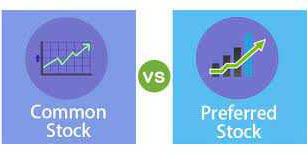Navigating Salt Lake City, Utah Mortgage Rates and Real Estate: A Practical Guide
Nov 06, 2023 By Susan Kelly
Are you considering making a move to Salt Lake City, Utah? Whether you're a first-time homebuyer or looking to relocate, understanding the local mortgage rates and real estate market is crucial. Let's break down the essentials in simple terms.
Salt Lake City Mortgage Rates: What You Need to Know
Getting a mortgage is a big step in the homebuying process. In Salt Lake City, mortgage rates can vary, so it's important to stay informed. However, keep in mind that rates can change based on factors like your credit score, loan type, and market conditions.
To get the best rate, shop around and compare offers from different lenders. Credit unions, banks, and online lenders are all viable options. Don't hesitate to negotiate terms and ask questions to ensure you understand the details of your mortgage.
Salt Lake City Housing Market Trends
Interested in the Salt Lake City housing market trends? Let's break it down in straightforward terms.
1. Steady Growth in Home Prices: Over the past few years, Salt Lake City has experienced a steady increase in home prices. This growth is attributed to factors like a strong job market, low unemployment rates, and a generally robust economy.
2. Limited Housing Inventory: One challenge in the Salt Lake City market is the limited housing inventory. The demand for homes often surpasses the supply, leading to competitive conditions for buyers. This can result in multiple offers on desirable properties and relatively quick sales.
3. Impact of Interest Rates: Mortgage interest rates play a significant role in the real estate market. If rates are low, it tends to encourage more buyers to enter the market, increasing demand. Conversely, higher rates may slow down market activity.
4. Neighborhood Variances: Salt Lake City is known for its diverse neighborhoods, each with its unique charm and character. While some areas may experience higher-than-average price growth, others might see more moderate trends. It's essential to consider individual neighborhoods and their specific market dynamics.
5. Shift in Buyer Preferences: There's a noticeable shift in buyer preferences, with a growing interest in energy-efficient homes, smart technologies, and sustainable features. Properties that offer these amenities often stand out in the market and may command higher prices.
6. Strong Seller's Market: The current housing market in Salt Lake City leans towards being a seller's market. This means that sellers may have the advantage, given the high demand for homes. Buyers need to be proactive, well-prepared, and, at times, flexible to secure the property they desire.
Factors that Could Affect the Salt Lake City Real Estate Market
Let's explore the factors that could have an impact on the Salt Lake City real estate market in a straightforward manner.
1. Economic Conditions: The overall economic health of Salt Lake City plays a significant role. Factors such as job growth, unemployment rates, and the strength of local industries can influence both the demand for housing and people's ability to afford homes.
2. Interest Rates: Mortgage interest rates have a direct impact on homebuying affordability. If rates are low, it generally stimulates demand, while higher rates may deter potential buyers. Keep an eye on national and local interest rate trends to anticipate shifts in the real estate market.
3. Housing Inventory: The balance between housing supply and demand is crucial. A shortage of available homes can lead to increased competition among buyers, potentially driving up prices. Conversely, an oversupply could result in a buyer's market with more negotiating power for those looking to purchase.
4. Population Growth: Salt Lake City has witnessed a consistent increase in its population over the past few years. The arrival of new residents can significantly boost the demand for housing, exerting influence on both property values and rental prices. It's essential to assess how migration trends can affect the dynamics of the local real estate market.
5. Government Policies and Regulations: Changes in government policies, zoning regulations, or tax incentives can have a profound effect on the real estate market. Stay informed about any proposed or implemented changes that could impact property values or the overall housing landscape.
6. Local Amenities and Infrastructure Development: Investments in local amenities, infrastructure, and public services can enhance the desirability of certain neighborhoods. Proximity to public transportation, schools, parks, and other amenities can influence property values.
7. Natural Disasters and Climate Factors: Given its geographical location, Salt Lake City is susceptible to certain natural disasters. While the risk is relatively low, events like earthquakes can influence property values and the insurance landscape. Stay informed about the city's preparedness and resilience measures.
8. Market Speculation and Investor Activity: Speculative behavior and high investor activity can contribute to market volatility. Keep an eye on trends related to real estate speculation and the proportion of properties being purchased by investors.
Tips for Homebuyers in Salt Lake City

Let’s discuss some of the tips for homebuyers in Salt Lake City.
Work with a Local Realtor: A knowledgeable local real estate agent can be your best ally. They understand the ins and outs of the market and can guide you to properties that meet your criteria.
Consider Your Commute: Salt Lake City is known for its outdoor recreation opportunities, but it's also important to consider your daily commute. Evaluate the proximity to your workplace and other amenities when choosing a neighborhood.
Get Pre-Approved: Before you start house hunting, get pre-approved for a mortgage. This not only gives you a clear budget but also makes you a more attractive buyer to sellers.
Stay Informed: Keep an eye on market trends and mortgage rate updates. Staying informed will help you make confident decisions throughout the homebuying process.
Conclusion
In conclusion, Salt Lake City offers a vibrant real estate market with diverse housing options. By understanding mortgage rates, exploring neighborhoods, and following these tips, you'll be well-prepared to set on your homebuying journey in this beautiful Utah city. By staying informed about these factors, both buyers and sellers can make more informed decisions in navigating the dynamic Salt Lake City real estate market.
-
 Investment Feb 06, 2024
Investment Feb 06, 2024Compare and Discuss: Preferred vs. Common Stock
There is a big gap between preferred and common stock regarding their differences. Holders of common stock normally have one vote for each share they own, whereas holders of preferred stock do not typically have voting rights.
-
 Mortgages Nov 08, 2023
Mortgages Nov 08, 2023A Detailed Comparison between Reverse Mortgage vs. HELOC
If you want to know which one is better, reverse mortgage vs. HELOC, then keep on reading this article.
-
 Banking Nov 05, 2023
Banking Nov 05, 2023What is CDIC?
CDIC protects Canadians' financial assets. If the financial institution you bank with is a member of the CDIC and it collapses, the CDIC will pay up to $100,000 per account, which includes both the principle and the interest.
-
 Mortgages Nov 11, 2023
Mortgages Nov 11, 2023Why 20 Year Mortgage Rates Today is The Best Time to Invest!
You may have to pay higher monthly payments due to 20 year mortgage rates today, but it is the best time to invest as the rates may increase.
